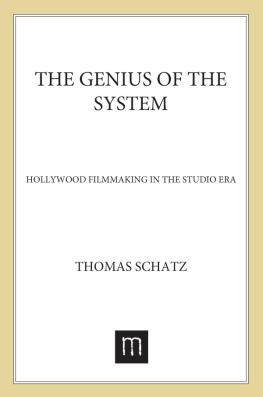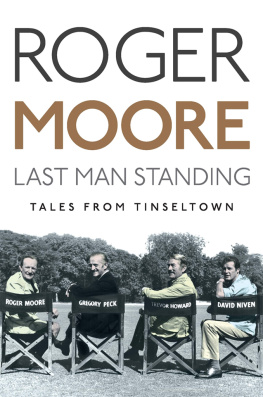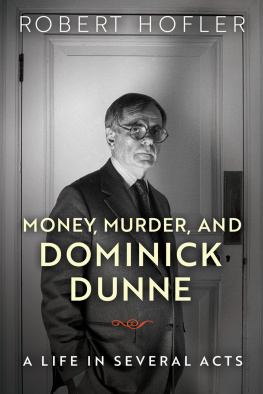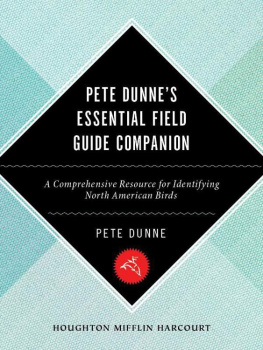John
Gregory
Dunne
CROONING
A COLLECTION
For Q
For Nora and Nick
For Susanna
And for Two-Oh-Two
Contents
Introduction
I had wished to call this collection REMFs, after one of the pieces collected, but discretion, in the corporate person of my publisher, prevailed, on the grounds that REMFs, as a title, might be construed by reader and (perhaps more importantly) bookseller alike as too deliberately hostile and aggressive. That leads to two questions, the first being what does REMFs actually mean (and for the answer to that I can only direct you to page 150), the second being why I wanted to call this book REMFs anyway, taking at face value my contention it was not merely to flip a rather public bird at those thought police who are our arbiters of good taste.
Of course hostility and aggression are involved. Most writersat least most writers of my acquaintancehave a liberal component of each in their makeup. The absolute self-reliance that orders any writers day demands it. Doubt is the enemy, the cancer that can metastasize into writers block; the best way to guard against doubt, or any perception of it, is to take a ninjas stance toward the world.
What I am saying is that any literary endeavor is an attempt to harness this hostility, an attempt, however camouflaged, to breach the readers defenses, to make her or him capitulate and accept the writers view, be it of the world at large or only a sliver of it. There are many different ways the writer can accomplish this endby frontal assault or indirection, by humor or ridicule, by selection or rhetoric. Make no mistake, however: writing is an aggressive act, and he who would claim, as I once did, that he was one of lifes neutrals, a human Switzerland, is perhaps the most aggressively insidious of all.
Nine of the pieces in this collection were first published in The New York Review of Books, a journal with which I have had an association since 1979. There are a number of reasons why I like to write for the Review, and none have anything to do with money; an outside source of income is advised if one intends to publish there with any regularity. Robert Silvers is the editor of The New York Review. Writers are often asked what an editor does, and the ingrates among us usually reply, Nothing. I exempt Robert Silvers from this casual bad rap, but I still do not know exactly what he does or why it is so effective; I can only describe his modus operandi.
A piece usually begins with lunch at Patsys, a nondescript Italian restaurant on the West Side of Manhattan whose walls are decorated with 8 X 10 glossies of has-been actors and actresses, many with handwritten messages expressing undying fealty to the management or encomiums for the rather watery clams marinara. Mr. Silvers table, please. On the second floor, at the top of the stairs. Bob drinks Pellegrino and eats only the inside of the bread, all the while neatly brushing the crust crumbs with his knife into his left hand, and from there onto the butter plate, and sometimes the floor, with not a break in the conversation. The topic for the day is local Democratic politics in Connecticut. My turf, I think. Something I will know more about than Bob. I am from Hartford, after all, I know John Bailey and Tony Zazzarro. My mistake: so does Bob. And seemingly the name of every precinct captain in New Britains fifth ward. And judges in Waterbury. And the man to see in Derby. And the fellow who gets out the vote in New London. I am reeling, my putative knowledge reduced to the blustering ignorance it is. A plaintive question: How do you know all these people? Ah, yes, well, old boy (I will wager not many people who know the Sanitation Commissioner in Hartford call acquaintances old boy), I was Chet Bowless press secretary the last few months he was governor. By my calculations Bob was nineteen. Of course.
What is astonishing about Robert Silvers is the amount he knows. If he doesnt know it, he will learn it. And if he knows it, and youre writing about it, youre going to get it. Books, clips, press releases, The Wall Street Journal, The Washington Post, the Times, magazines, desktop publishing, Suzy and Page 6 in the Postwhen does he find time to read all this goddamn stuff? And will he stop sending it already? Of course not. It comes via fax, messenger, TWX, overnight mail, FedX: nobody at the Review seems to have heard of a twenty-five-cent stamp and the U.S. Postal Service; or perhaps they know it all too well. If Bob had been editing during the time of the Pony Express, God knows how many horses he would have killed to get that new set of galleys out to Los Angeles when I was living there, or the piece in Pacific Islands Monthlywrongheaded, but interestingto Jim Fallows when he was in Kuala Lumpur. And if the horses stop at waters edge, then swim!
And they would, which is why it is such an invigorating experience to write for the Review. Not that Bob is perfect. He would not permit the title REMFs either, when the piece was published, and he made me cut the last line as too ad hominem. It goes without saying that I restored it in this version.
Random bits from three pieces about baseball that were not good enough individually to fit into this collection:
On Baseball and Intellectuals: Baseball, George Will once pontificated, resembles nothing so much as the universe, a bit of extension-school metaphysics that is a perfect example of the kind of cosmic bullshit indulged in by intellectuals when they try to scan the religion of the diamond for meaning. Jacques Barzun was an early and egregious member of the Baseball is [historical metaphor of choice] school. Baseball is Greek, Barzun wrote in 1954, in being national, heroic, and broken up in the rivalries of city-states. In fact, baseball is not the universe nor is it Greek. It is simply, like sex, extremely difficult to write about.
On Baseball and Sports Writing: I think one reason baseball is so difficult to write about is that the natural language of its practitioners is clich. The major-league ballplayer lives at the frontier of instinct and reflex, where the difference between success and failure can be measured incrementally in microseconds; he will never again do anything in his life as well as what he does at the age of twenty-five. Hand-to-eye coordination is better developed than the vocabulary to explain it.
Many sportswriters, as a result, ridicule the athletes poverty of expression. It should be said that the sports beat is one of the less arduous assignments in newspapering, not excluding show business, and what constantly surprises me, whenever I venture into a press box, is the prevailing bunker mentality. The facts of sports are immutableone team wins, one team losesso that sportswriting is essentially the search for an angle. Among the less talented, this breeds a kind of macho posturing. In some sections of the press box the prevailing attitude is that if it were not for sports most ballplayers would be pumping gasif they werent sticking up the gas station. For their part, ballplayers are as clannish as cops, and as resistant to those who do not share their profession. In major-league clubhouses there is an inchoate sense that being a jock is a higher calling than being a jock sniffer, that if were so dumb and sportswriters are so smart, why are they covering us. In this sullen truce, macho posturing becomes the lingua franca of both sides.
Of Baseball and Tom Lasorda: Tommy Lasorda, the manager of the Los Angeles Dodgers, has the world view of an opening act in Vegas. The first time I met him, he was holding forth in his office at Dodger Stadium. Automatically he reached into his desk, removed an 8 X 10 glossy of himself from a stack in the drawer, and without a break in the colloquy he was holding with local and visiting sportswriters, autographed the photo with the words To JohnYou and the DodgersBoth winners Tom Lasorda. To say Lasorda has a mouth like a sewer is to pin a bad rap on the department of sanitation. Every sentence was decorated with references to bodily waste and the orifices from which the waste is excreted, to the male and female genitalia at rest and at play, to sodomy and reproduction. To a reporters critical question, he replied without pausing for breath, Opinions are like assholes, everyone has one. I have since come to believe that this piece of gutter wisdom is the most sane response to criticism I have ever run across.










